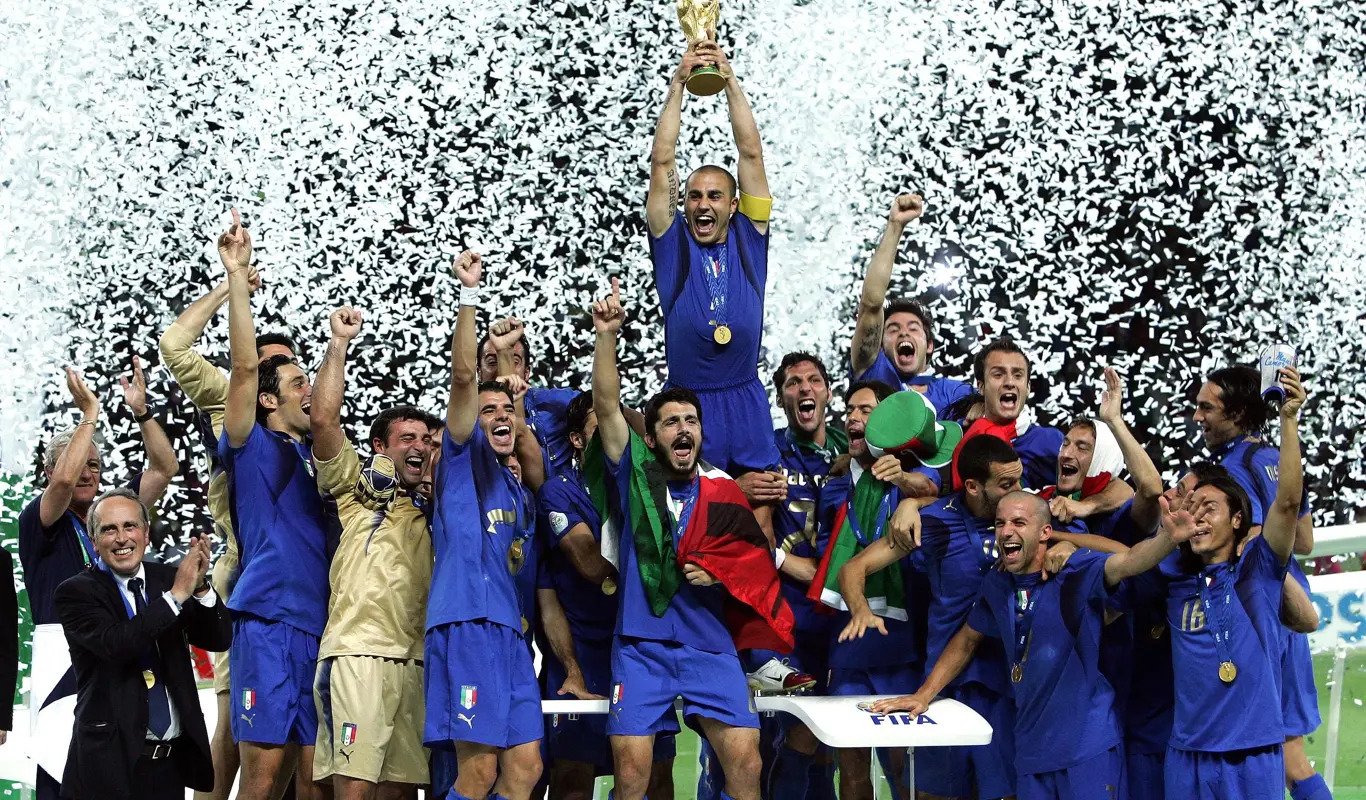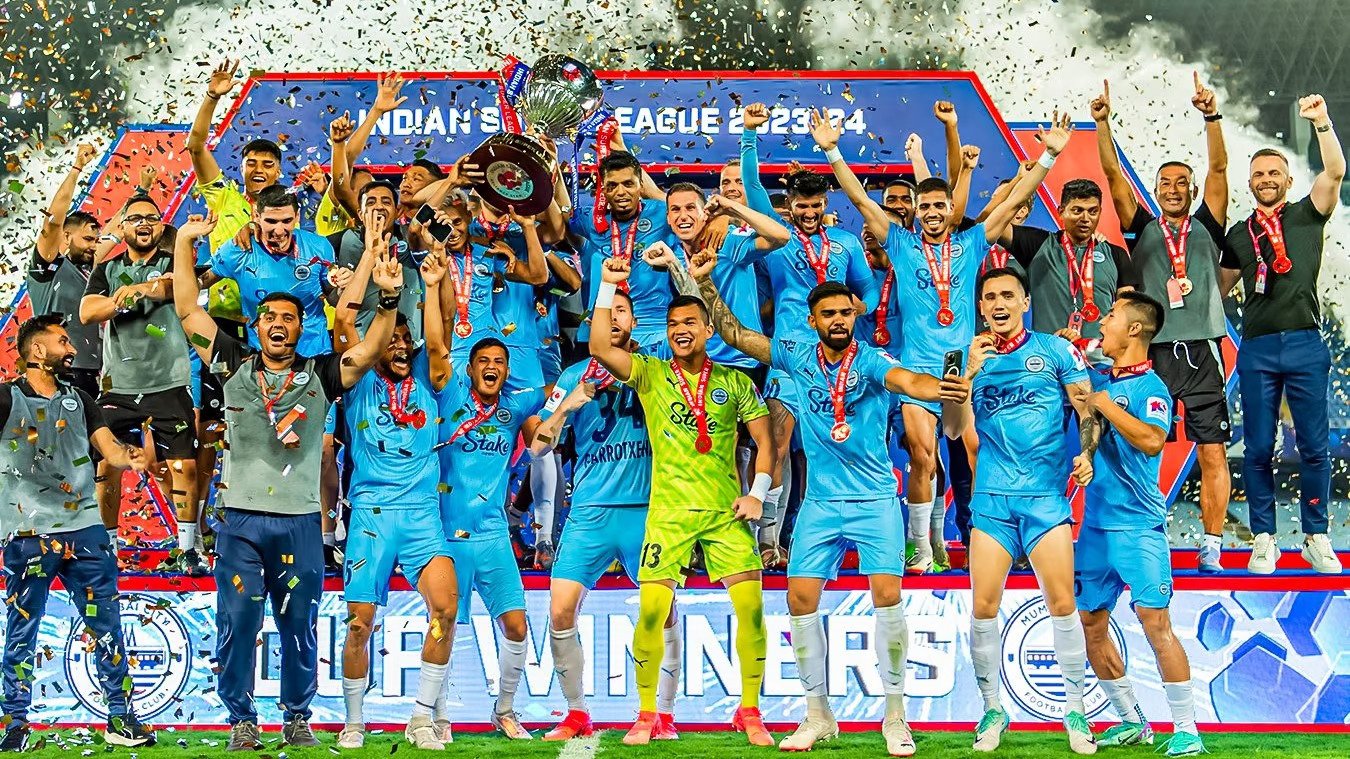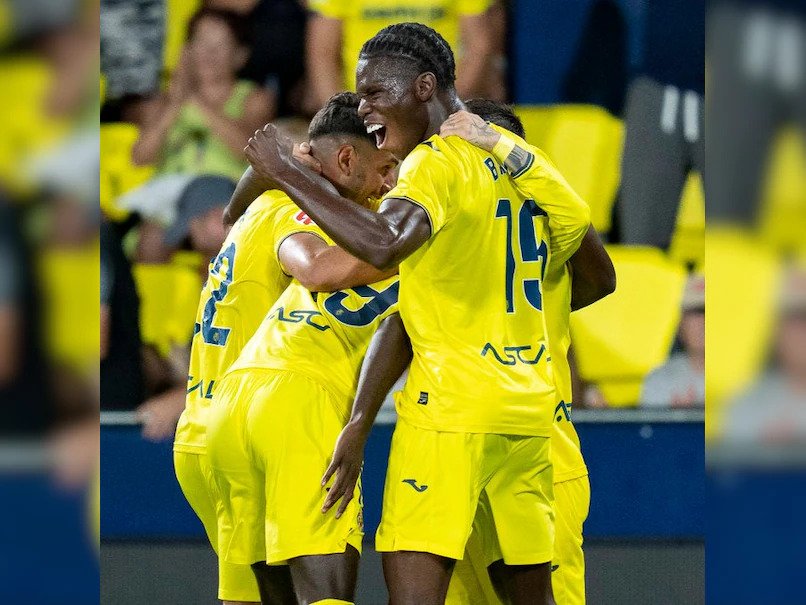Recap of the 2010 FIFA World Cup Final: Spain’s Triumph Over Netherlands
2010 FIFA World Cup Final between Spain and Netherlands:
The 2010 FIFA World Cup final marked the thrilling conclusion of the 19th edition of FIFA’s prestigious competition for national football teams. Hosted in Soccer City, Johannesburg, South Africa, on 11 July 2010, the final showdown featured the Netherlands squaring off against Spain, capturing the attention of millions of fans worldwide. The tournament included 32 teams, including hosts South Africa, who battled through the qualification stages organized by FIFA’s six confederations.
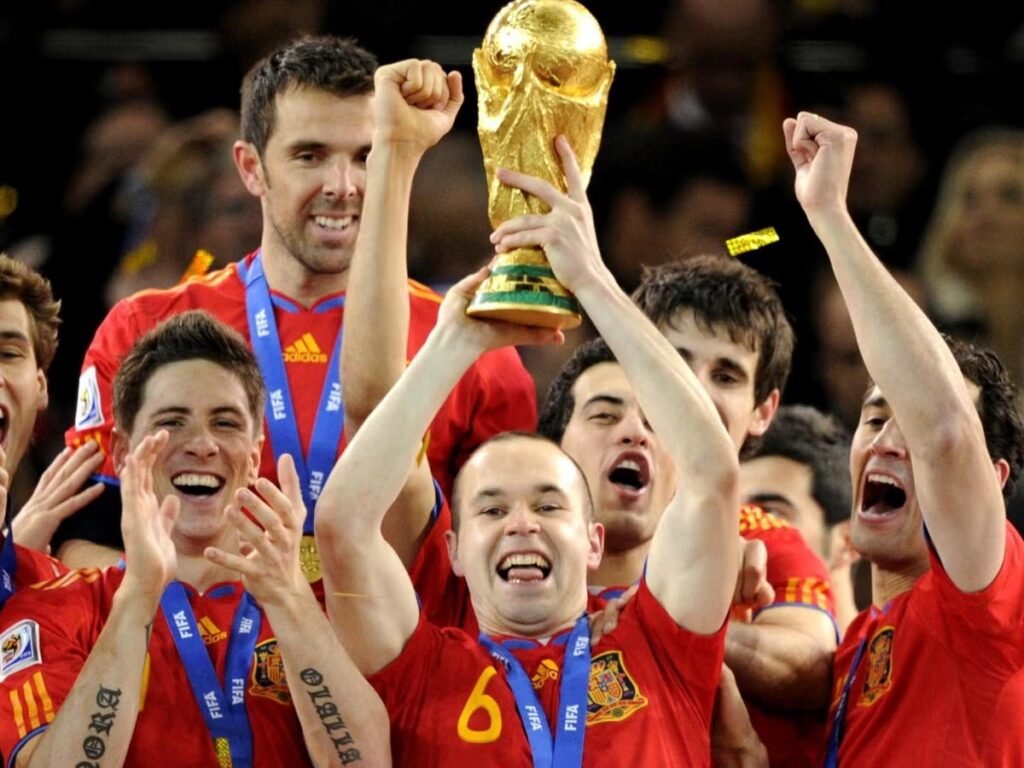
During their journey to the final, the Netherlands topped Group E with three wins and triumphed over Slovakia, Brazil, and Uruguay in the knockout stages. Spain, on the other hand, emerged as the leaders of Group H with two wins and one loss, defeating Portugal, Paraguay, and Germany on their path to the final.
The highly anticipated final match attracted a massive audience of 84,490 spectators at the stadium and over 909 million viewers on television. Refereed by Howard Webb from England, the game showcased intense moments, including Sergio Ramos and Arjen Robben’s attempts to score for Spain and the Netherlands, respectively.
The deadlock persisted through 90 minutes, leading to extra time where John Heitinga’s dismissal and Andres Iniesta’s remarkable volley secured a 1–0 victory for Spain, marking their first-ever World Cup triumph. Iniesta’s stellar performance earned him the Man of the Match title, while Iker Casillas was honored with the Golden Glove award for his exceptional goalkeeping throughout the tournament.
First Half
At roughly 8:30 p.m. local time (6:30 p.m. UTC), the Netherlands began with 14 °C (57 °F) temperatures and 34% humidity. After van Bronckhorst fouled Alonso in the fifth minute, Spain was awarded a free kick. Sergio Ramos headed Xavi’s kick into the bottom-left corner of the goal, but Stekelenburg was able to dive down and make the save. Ramos was in the penalty area. After Pique regained possession of the loose ball, Stekelenberg intercepted his effort to pass to Villa in the center.
After a blunder by Alonso, Kuyt received the ball two minutes later. He attempted a weak shot from 25 yards (23 meters) out, allowing Casillas to grab the ball. After Iniesta sent the ball to Ramos, Spain had an opportunity on eleven minutes, but John Heitinga deflected Ramos’ effort over the bar.
After that, Alonso won the corner, which Villa volleyed into the side net. Van Persie was booked for the first time in the game in minute 15 for a foul on Capdevila. Puyol was also booked for a high tackle on Robben two minutes later. After Casillas collected the ensuing free kick, Sneijder attempted a 25-yard (23-meter) effort on goal.
Also Read: Messi Grabs the World Cup and Completed Football
Also Read: Germany Clinches 2014 FIFA World Cup Final
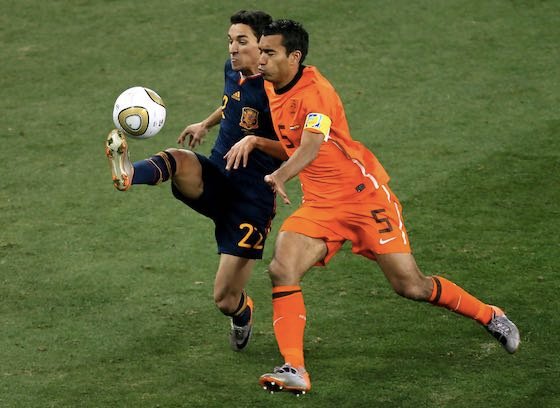
After a sliding tackle on Iniesta in minute 22, Mark van Bommel was called for a foul, and two minutes later, Ramos was also penalized for bringing down Kuyt. After a high tackle on Alonso that caused his studs to make contact with the Spaniard’s chest, Nigel de Jong was booked for the sixth time in the game.
Paul Fletcher of BBC Sport said that the numerous bookings “disturbed the rhythm of the match,” but Busquets insisted that this should have resulted in a sending off. However, he added that “several crude challenges left him with little option.”
On minute thirty-three, Casillas collided with Puyol, injuring him, stopping play to let Puyol to receive medical attention. On the ensuing throw-in, the Netherlands tried to get the ball back to Casillas, but Casillas was caught off guard by the ball’s bounce off the pitch, forcing him to push it behind in order to stop the Netherlands from scoring. He received the ball back from the Netherlands in the corner.
On minute 37, the Netherlands had two chances to score from a corner, but van Bommel and Mathijsen both missed their attempts to connect. After then, Pedro sprinted upfield with the ball, but his attempt missed the target. Robben received the ball just before halftime on the edge of the Spanish penalty area. The half finished 0-0 after Casillas stopped his low shot towards the goal’s corner.
Also Read: The 2018 FIFA World Cup Final Preview: France vs Croatia
Second Half
Spain started the second half and made no substitutions at the interval. On minute 48, they had their first chance of the half when the ball came to Capdevila, who was about 6 yards (5 m) from goal, but he mishandled his attempted side-footed effort. After van Bommel and Alonso contested the ball, Spain had a penalty appeal knocked down on minute fifty. The Netherlands then advanced down the field and crossed the ball into the Spanish penalty area, but no Netherlands players were able to get to the ball.
On minute fifty-two, a mistake by Casillas and Puyol resulted in a throw-in for the Netherlands, who launched an onslaught until Casillas claimed van Persie’s shot. Spain then won a free kick roughly 25 yards (23 m) from goal, following a foul by van Bronckhorst for which he was booked. Xavi attempted to score, but it missed the mark.
After Heitinga booked Villa for a foul on minute 56, Iniesta fouled Robben two minutes later, giving the Netherlands a free kick. Heitinga was judged to be offside, but he missed his attempt when the ball got to him in the penalty area. On minute sixty, Spain made the first change of the game, substituting Jesus Navas for Pedro.
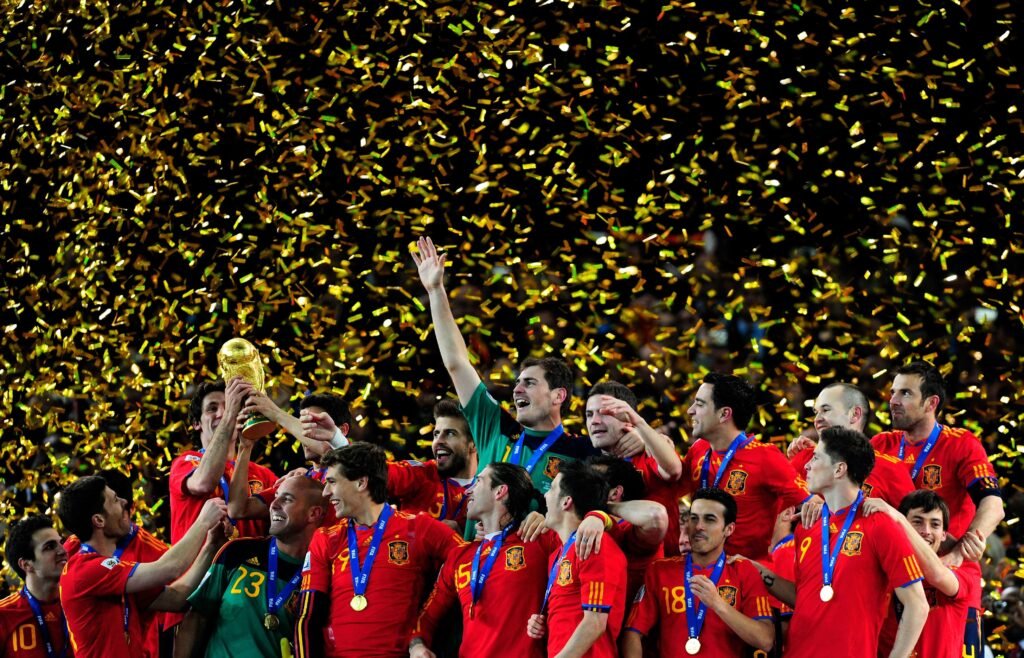
In the sixty-second minute, Robben found himself one on one with Casillas after receiving the ball from an upfield Sneijder pass. He tried to flick the ball over the goalie and into the goal’s corner, but his shot was too low, and Casillas was able to push it out for a corner, where the Dutch were unable to score.
After Capdevila was cautioned for a foul on van Persie on minute 67, Villa had a chance three minutes later when Navas’ pass found them four yards (4 m) from goal. Stekelenburg made a “amazing save, terrible miss” as he parried his shot from behind. Scott Murray of The Guardian described it as such. After Kuyt was substituted by Elia for the Netherlands on minute 71, Spain was awarded a free kick approximately 25 yards (23 meters) from goal, which Villa missed.
A minute later, Alonso found Navas, who delivered in a cross, giving Spain another chance, but Villa’s attempted volley went wide. After Villa and Xavi played a one-two, Villa’s shot was saved, giving Spain a corner on the 77th minute.
Ramos, who was unmarked six yards (5 meters) from goal when the ball arrived from the corner, attempted to head it but missed the crossbar. On minute 83, Robben had another opportunity when he got past Puyol and tried to pass the ball around Casillas, but the goalkeeper swooped down to grab it before he could. After Robben claimed that Puyol had fouled him, he was penalized for dissent. The match proceeded into extra time and ended in a 0-0 draw after ninety minutes.
Extra Time Drama
When Xavi went down after a collision with Heitinga two minutes into the extra period, Spain called for a penalty, but it was not awarded. Three minutes later, Cesc Fabregas, who had replaced Alonso just before halftime, found himself one on one with the goalie after Iniesta had passed to him. He sent a low shot that was headed toward the goal’s corner, but Stekelenburg was able to grab it.
from that, Fabregas gave the Netherlands a chance when he blocked Casillas from a Netherlands corner. When the ball got to Mathijsen—who wasn’t marked—it went over the crossbar in his effort to head it into the goal from six yards (5 meters) out.
following that, Spain had two opportunities: first, through Puyol, whose header towards goal lacked strength and direction, and second, through Iniesta, who surged forward following Fabregas’s pass but lost the ball to van Bronckhorst, preventing him from shooting or setting it up for Navas, who was in space.
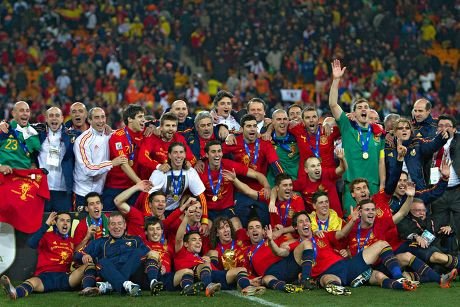
The Netherlands then substituted van der Vaart for de Jong in their second substitution. After passes from Villa and Fabregas, Navas sprinted with the ball down the right-hand flank on minute 101 before shooting into the side netting. A lot of onlookers on the field believed it had been a goal. After three minutes, Fabregas attempted a shot, but it narrowly missed the goalpost.
In the 105th minute, Edson Braafheid was brought on by the Netherlands in place of van Bronckhorst. Following extra time, Fernando Torres was substituted by Spain in place of Villa. Braafheid’s first touch came in the defence of a cross from Xavi; after turning away from the ball, it bounced off the top of his head and into Stekelenburg’s arms. After that, Xavi located Iniesta on the left side of the pitch, but Heitinga hauled him down, preventing him from making his intended run into the penalty area.
Heitinga became the fifth player to be sent off in a World Cup final when the referee issued him a second booking. On minute 111, van der Wiel was booked again for fouling Iniesta. Stekelenburg cleared the ball from the ensuing free kick, and Navas then struck a shot that soared high and struck the stand behind the goal.
Sneijder took the free kick that the Netherlands gained on minute 115 after Pique fouled Elia. Casillas fingertipped it behind after it rebounded off the Spanish wall, but the referee awarded a goal kick rather than a corner.
After that, Torres of Spain broke upfield, passing into the center where the ball deflected off a defender from the Netherlands. After Fabregas got it, he transferred it to Iniesta, who was positioned in the penalty area on the right. Four minutes from the end, he gave the ball one touch with his right foot before hitting it on a half-volley past Stekelenburg into the left corner of the goal to give Spain the lead.
The assistant referee received complaints from the Netherlands’ players regarding the call on the corner and what they saw as an uncalled foul on Elia. Iniesta was also booked for taking off his shirt as he celebrated scoring a goal, while Mathijsen was booked for hurling the ball onto the field out of rage. Despite Torres’ injury-time hamstring pull and Xavi‘s 120-minute booking for kicking the ball away, Spain managed to win the game 1-0 and secure their first-ever World Cup victory.
Post Match Stats
With the victory, Spain won their maiden World Cup and shot up to the top of the FIFA World Rankings, with the Netherlands coming in second. In addition, Spain became the first country in Europe to win a World Cup outside of the continent. The Spanish team changed into their red-shirted home uniform for the presentation after the game. Their World Cup success was already represented with a star over the symbol on these shirts.
When the Netherlands team went up to the stands to collect their runners-up medals, the Spanish players created a guard of honor for them. Then, led by Xavi, the red-shirted Spaniards went forward to collect their medals. Zuma and FIFA President Sepp Blatter gave the trophy to Spain‘s captain Casillas, who traditionally started last.
A snippet of “Sign of a Victory,” the official tournament anthem, was played as Casillas raised the trophy. Iniesta was selected man of the match, while the Spanish squad took home the Fair Play Trophy and Casillas was awarded the FIFA Golden Glove for being the best goalie in the competition.

